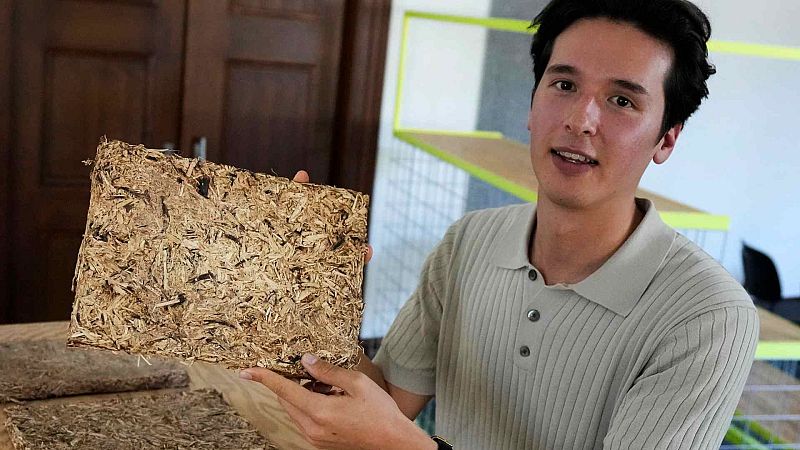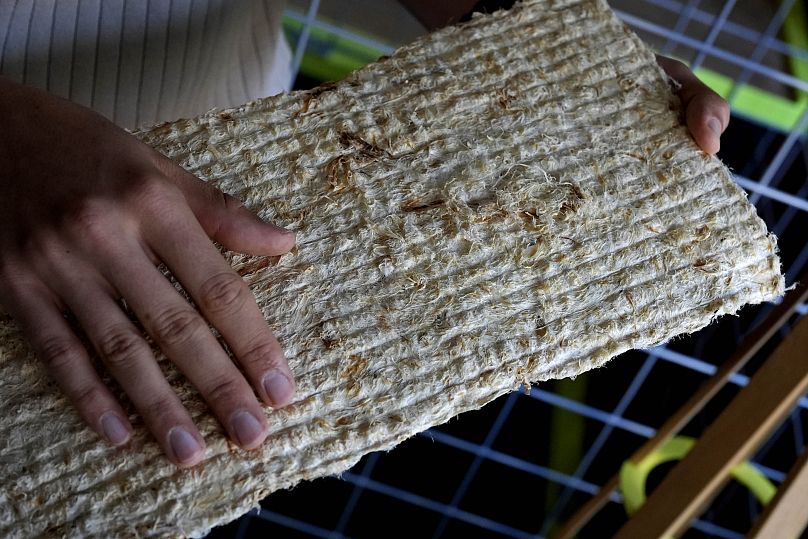Germany’s beer industry produces costly waste: This startup is turning it into building materials

Back in 2022, three students in Munich chatted about a recent lecture on how banana fibres in Colombia are used to make sustainable building materials.
Wouldn't it be great, the Technical University of Munich students joked, to do something similar with a local product here in Bavaria - perhaps with the waste from the region's famous hops?
They wasted no time in researching what might be possible. Within months, they'd launched a startup called HopfON - a play on 'hopfen' the German word for hops. They're now selling products to the construction industry made from the waste created in the beer-brewing process.
More than one-third of all waste generated in the EU comes from the construction and demolition industry so it is the perfect sector to target.
Saving farmers money and reducing emissions
When hops are harvested every autumn in Germany's Hallertau region - the world’s largest hops-growing area about an hour north of Oktoberfest - for every one kilogram of material inside the cones that can be used to brew beer, there are 3.5 kilograms of wasted biomass from the rest of the plant. That's a ratio that's roughly 20 per cent usable product to 80 per cent waste.
Some of the hops waste can be used for fertilisers, and a portion can be sold to biogas plants to produce energy. But the majority is unusable for farmers, who may be forced to rent additional farmland to dump piles of the waste away from their crops. The piles can ferment and emit greenhouse gases - and sometimes catch fire.
“We saw a huge potential in sourcing locally and also using a waste stream that was neglected by basically most people," HopfON entrepreneur Mauricio Fleischer Acuña told The Associated Press.
What do HopfON do?
During the harvest, the team takes the fresh material from farms and dries it, then removes any impurities and recyclable metals.
It's chopped up and separated out for a patent-pending process that uses binding agents already in the plant to turn the biomass into products like acoustic panels, thermal insulation and building boards.
A coworking space in the southwestern German city of Mannheim was the startup's first customer for the acoustic panels. A future plan is to make drywall alternatives.
The startup has also launched a circular model where customers can return their products to be remade into new materials.
Fleischer Acuña and his co-founders, Marlene Stechl and Thomas Rojas Sonderegger, also plan to widen their business to use other organic materials and will eventually change their name from HopfON to onmatter.
New varieties of hops produce less waste
The trio is not the only group in Bavaria seeking to solve this problem.
At the Society of Hop Research in Hüll, researchers have developed new varieties of hops that are more sustainable and produce less waste. Managing Director Walter König says the new varieties mean that for every one kilogram of cones, there are just 1.2 to 1.4 kilograms of waste.
Perhaps most importantly, König said the research did not sacrifice the hops' quality - meaning they ultimately retained the traditional taste that brewers, and beer lovers, want.
“It’s a very sophisticated thing to bring them all together for a new variety that smells good and that fits to the beers that we need,” he added.


